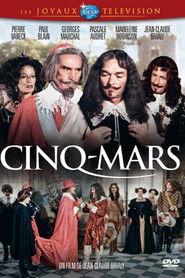detail profile richard clayderman

Riwayat Hidup
Richard Clayderman (born Philippe Pagès, 28 December 1953 in Paris) is a French pianist who has released numerous albums including the compositions of Paul de Senneville, Olivier Toussaint and Marc Minier, instrumental renditions of popular music, rearrangements of movie soundtracks, ethnic music, and easy-listening arrangements of popular works of classical music.
Clayderman learned piano from his father, an accordion teacher.
At the age of twelve, he was accepted into the Conservatoire de Paris, where he won great acclaim in his later adolescent years.
Financial difficulties, precipitated by his father's illness, forestalled a promising career as a classical pianist.
In order to earn a living, he found work as a bank clerk and as an accompanist to contemporary bands.
He accompanied French singers such as Johnny Hallyday, Thierry Le Luron, and Michel Sardou.
In 1976, he was invited by Olivier Toussaint, a French record producer, and his partner Paul de Senneville, to record a gentle piano ballad.
De Senneville had composed this ballad as a tribute to his baby daughter, Adeline.
The 23-year-old Pagès was auditioned along with 20 other pianists and got the job.
"He was an interesting musician with a soft touch and good technique", said Toussaint.
"And he looked good, too.
"
Pagès' name was changed to Richard Clayderman (he adopted his great-grandmother's last name to avoid mispronunciation of his real name outside France), and the single took off, selling 22 million copies in 38 countries.
It was called "Ballade pour Adeline".
Clayderman has recorded over 1,300 melodies and has created a new romantic style through a repertoire which combines his trademark originals with classics and pop standards.
As of 2006, his record sales number at approximately 70 million, and has 267 gold and 70 platinum albums to his credit.
He is popular in Asia and is noted by the Guinness Book of World Records as being "the most successful pianist in the world".
Source: Article "Richard Clayderman" from Wikipedia in English, licensed under CC-BY-SA 3.
0.
Info Pribadi
Peran Yang Di Mainkan Richard Clayderman
 Indepth documentary about the story of...
Indepth documentary about the story of...The Joy of Easy Listening 2011
In-depth documentary about the story of easy listening, a popular music that is often said to be made to be heard but not listened to. The film looks at easy listening's architects and practitioners, its dangers and delights, and the mark it has left on modern life, from its emergence in the 1950s until its revival in the 1990s.
 After twomonthold kitten Chibineko is abandoned...
After twomonthold kitten Chibineko is abandoned...The Star of Cottonland 1984
After two-month-old kitten Chibi-neko is abandoned by her former owners, she is found by 18-year-old Tokio. Although his mother is allergic to cats and has a great fear of them, she agrees to let him keep the kitten because she fears he is becoming too withdrawn after failing his university entrance exams. Chibi-neko soon falls in love with Tokio. In her own mind, Chibi-neko is a small human who speaks in human words, although people only ever seem to hear her meow, and she believes that all humans were once kittens like her. A stray cat tells Chibi-neko of a paradise called Cottonland, where dreams can come true.
 In the 17th century under Louis...
In the 17th century under Louis...Cinq-Mars 1981
In the 17th century, under Louis XIII, the policy of Cardinal de Richelieu aimed at the definitive establishment of a monarchic power, and gave rise to a struggle against the great feudal lords, who favored a weak central power. Numerous conspiracies against the Cardinal were led by the high nobility. The one led by Henri Coiffier de Ruzé d'Effiat, marquis de Cinq-Mars, was the last and most famous of them.


 Recorded and broadcast by British TV...
Recorded and broadcast by British TV...